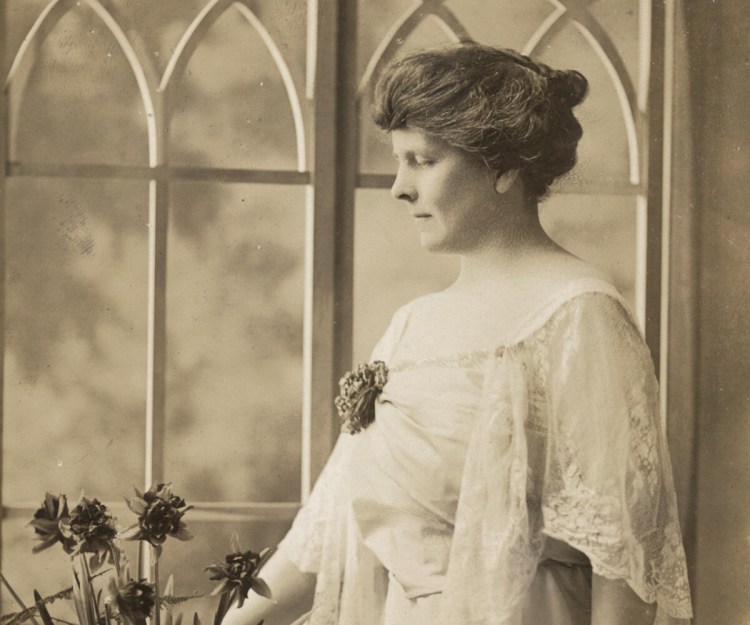Sept. 10, 1917: Maine’s men, contradicting earlier action by the Legislature, vote by a nearly 2-to-1 ratio to reject a proposed state constitutional amendment granting women the right to vote.

The House, with future Gov. Percival Baxter leading the charge, had voted 113-35 to approve the measure, and women’s suffrage had fared even better in the Senate, 35-0, under the prodding of Sen. Guy Gannett.
The anti-amendment side wins by a final tally of 36,713 to 19,428, although voter turnout is far lower than it was for a 1911 referendum on liquor prohibition.

Three suffragists cast votes in New York City in 1917. The caption on the photo reads: “Calm about it. At Fifty-sixth and Lexington Avenue, the women voters showed no ignorance or trepidation, but cast their ballots in a businesslike way that bespoke study of suffrage.” Photo courtesy of the Library of Congress
The Daily Eastern Argus, a Portland newspaper, comes away from the referendum with egg on its face, having predicted the opposite outcome in its Sept. 10 edition.
“With so many representative elements in the State avowedly in favor of the ‘yes’ side, and the ‘no’ advocates having failed to sustain their opposition with convincing argument, it seems reasonable to look for a suffrage victory,” the newspaper opined in its Election Day edition.
Women eventually gain voting rights in 1920 with the passage of the 19th Amendment to the U.S. Constitution, which, by that time, Maine supports.

Gov. Carl Milliken of Maine signs Maine’s ratification of the Federal Suffrage Amendment with the purple, gold and white National Woman’s Party pen on Nov. 5, 1919. The pen was designed for the ratification and was sent from state to state. Image courtesy of the Photographic Records of the National Woman’s Party-Action
The shifting social attitude reflected in the complicated voting record on women’s suffrage in Maine has striking parallels with state voting trends on the gay-rights and gay-marriage questions of the late 20th and early 21st century.
Sept. 10, 2013: The 5,800-seat Cross Insurance Center opens in Bangor, replacing the just-demolished Bangor Auditorium.
The new facility is used for sports events, concerts, conventions and other gatherings. For concerts, it can add another 2,700 seats.
Woodrow Cross, 96, from whom both a family-owned, New England-wide insurance company and the new Bangor events venue draw their name, cuts the ceremonial ribbon to open the site.
Cross tells the Bangor Daily News that he remembers when the Bangor Auditorium was built in the 1950s. It served the city well, but a change was needed.
“I’d rather have my name on this one,” Cross says.
Joseph Owen is an author, retired newspaper editor and board member of the Kennebec Historical Society. Owen’s book, “This Day in Maine,” can be ordered at islandportpress.com. To get a signed copy use promo code signedbyjoe at checkout. Joe can be contacted at: jowen@mainetoday.com.
Send questions/comments to the editors.



Success. Please wait for the page to reload. If the page does not reload within 5 seconds, please refresh the page.
Enter your email and password to access comments.
Hi, to comment on stories you must . This profile is in addition to your subscription and website login.
Already have a commenting profile? .
Invalid username/password.
Please check your email to confirm and complete your registration.
Only subscribers are eligible to post comments. Please subscribe or login first for digital access. Here’s why.
Use the form below to reset your password. When you've submitted your account email, we will send an email with a reset code.